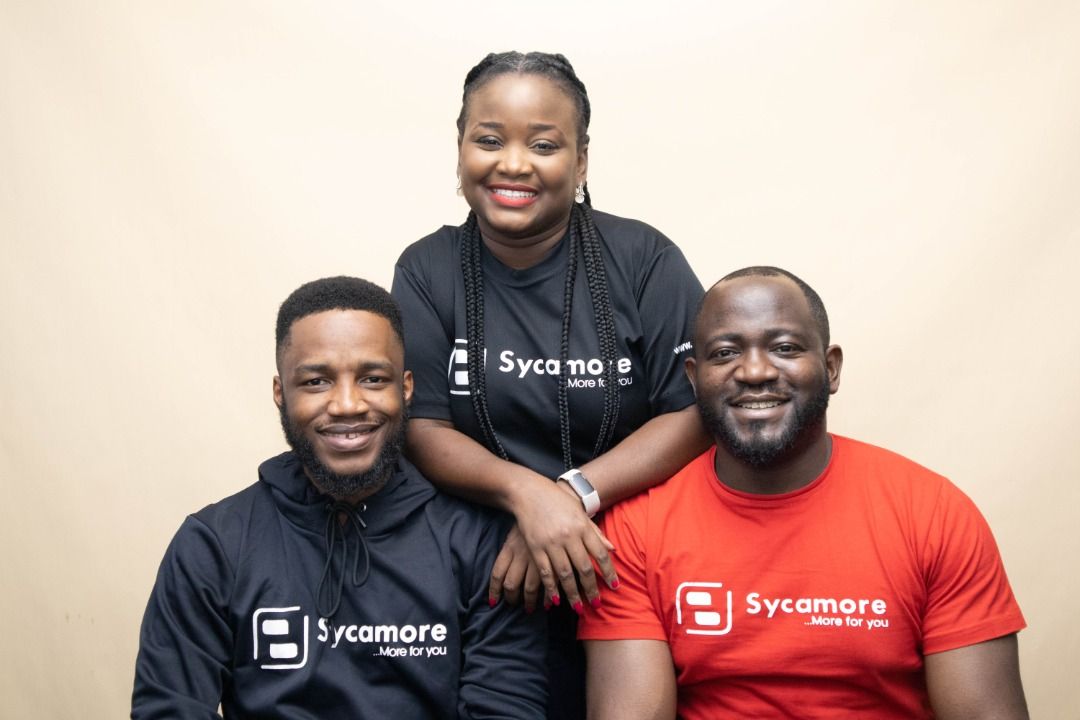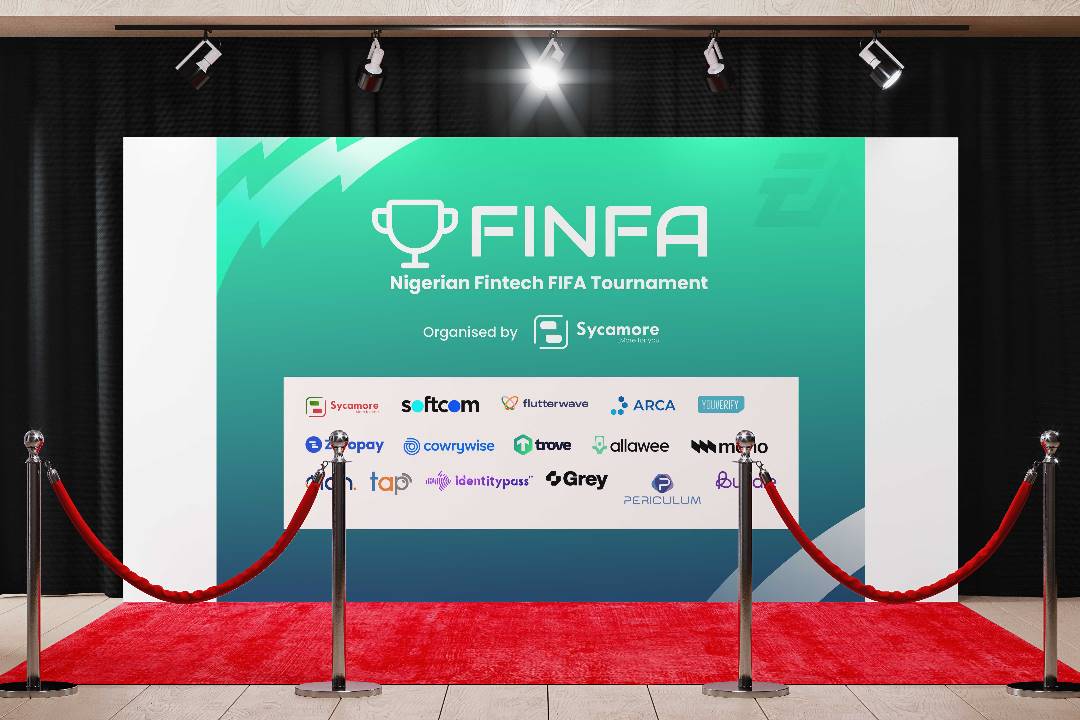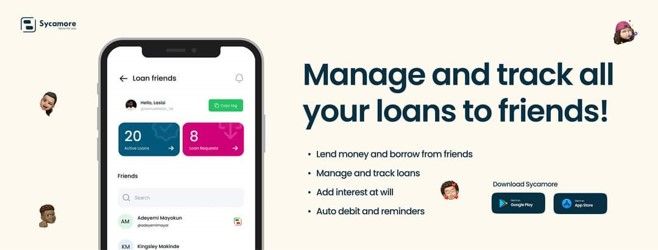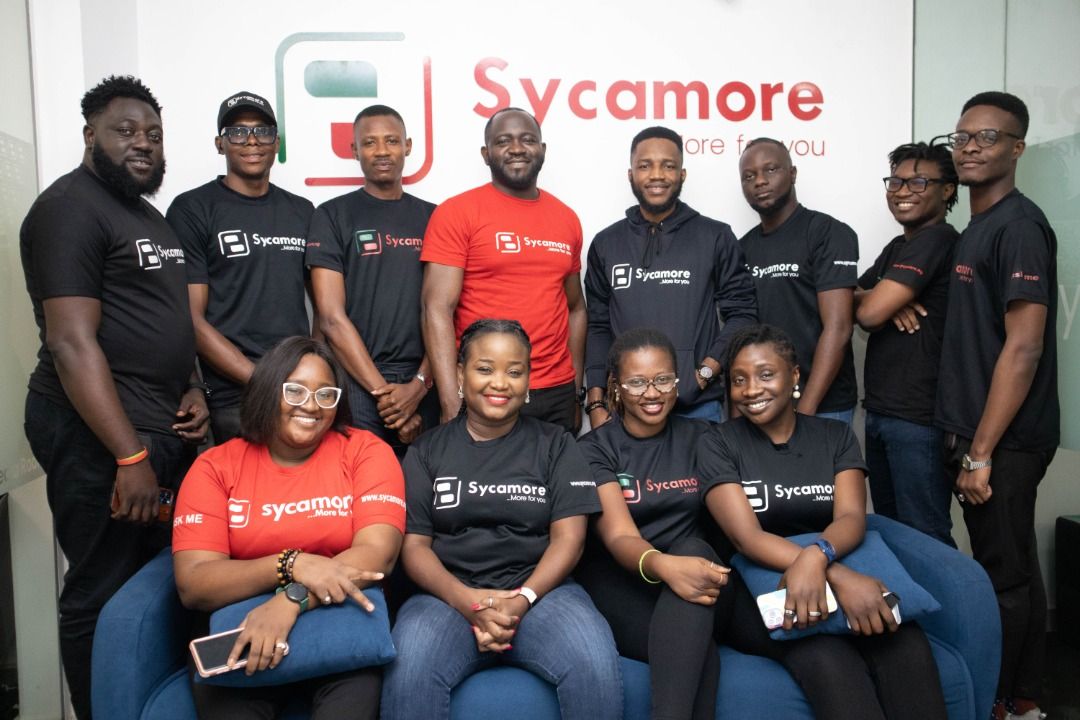Launched in March 2019, Sycamore is a digital P2P lending platform that is “elevating SMEs to achieve their goals” by making loans accessible to these businesses.
As of 2020, Nigeria's Small and Medium Enterprises Development Agency estimated that there are approximately 40 million MSMEs in Nigeria with a population of 200 million. Compared to other developed regions with higher populations, it is clear that Nigeria has significantly more entrepreneurs than these other regions.
For instance, the United States has a population of 329.5 million, out of these numbers, the country has only 30 million SMEs—this means that only 11% of the US population are running SMEs compared to the 20% in Nigeria.
However, only 4% of the 40 million MSMEs in the country have access to credit. Oftentimes, these businesses rely on their family and friends to get loans, since commercial banks dedicated only a small fraction of credit for MSMEs—these banks financed less than 3-5% of MSMEs in Nigeria, according to a 2019 [unpublished] analysis by Sycamore.
Launched in March 2019, Sycamore is a digital peer-to-peer (P2P) lending platform that is “elevating SMEs to achieve their goals” by making loans accessible to these businesses. Like the Biblical sycamore tree that elevated Zaccheaus to see Jesus.
The beginning of Sycamore
Sycamore’s co-founders—Mayowa Adeosun (COO), Babatunde Akin-Moses (CEO) and Onyinye Okonji (CMO)—met during their MBA programme at the Lagos Business School (LBS), Nigeria. “During one of our semesters, we were looking at problems facing MSMEs, and we realised that SMEs struggle to find access to affordable financing. So, we had a discussion and Babatunde brought up the idea of peer-to-peer lending,” Mayowa Adeosun, Sycamore’s co-founder and COO told Benjamindada.com.
Prior to the MBA programme and meeting his co-founders, Mayowa worked as a credit risk underwriter at a Nigerian insurance company. Meanwhile, at the time, Onyinye had about four years of working experience at two Nigerian lending companies—RenMoney and Page Financials. On his end, Babatunde also had relevant experience working as a consultant and financial analyst across different companies including PwC, KPMG, Shell and Pezesha.
“We leveraged our experiences to start the conversation in 2018, we incorporated the company in the same year. In March 2019, we disbursed our first loans. That was the beginning of Sycamore!,” Mayowa said. “Since then, we have continued to innovate around creating financial empowerment for individuals and MSMEs.”

For instance, when the company was launched, the founders wanted to create a peer-to-peer marketplace where people can request loans, and other users who are lenders will provide the credit. This model has evolved, and Sycamore currently works behind the scene with lenders to collate funds and allocate them to borrowers who have successfully passed through its risk assessments.
Sycamore’s lending and repayment journey
Since its launch, Sycamore has disbursed loans worth over $15 million to over 45,000 Nigerian MSMEs operating within Abuja, Lagos, Port Harcourt, Ibadan and Abeokuta. The company operates with state lending licences across these territories.
Recall that, in August 2022 after continued clamping down on digital lenders that are involved in predatory lending, FCCPC developed a regulatory framework for digital lending as an interim step to establishing a clear regulatory framework for the sector.
Related Article: Predatory lending in Nigeria—what is the way forward?
“Since MSMEs work in a delicate space. We have had to balance our customer base with SMEs, individuals with paid employment and groups. During the COVID-19 pandemic in 2020, we had about 11-13% of non-performing loans (NPL), and we came up with tight measures to ensure that the NPL is a single digit. Currently, our NPL is less than 5%,” Mayowa told Benjamindada.com during a call.
Sycamore has an average of 90% repayment rate on all its loans. According to Mayowa, the company has an experienced team in charge of remedial assets that ensures collections and recovery go smoothly.
“Sycamore is not an instant loan provider,” Mayowa stated. “There is a high default rate on instant loans, so we are more intentional by leveraging credit bureaus and using an algorithm that review bank statement to enable our risk assessments. This helps us with more adequate information about the customers, and it helps with repayment.”
Related Article: Is it good business to lend to Nigerian SMEs?
Inside Sycamore’s initiatives and products!
Aside from providing credit access to individuals and MSMEs, Sycamore has also developed programmes and products to enable a sense of community amongst its users and the fintech ecosystem at large.
For instance, the company recently hosted several Nigerian fintech companies like Flutterwave, Bundle Africa, Cowrywise, Kuda, GetEquity, Grey and Trove, to a FIFA contest on PS5 tagged FINFA (Fintech and FIFA). “We want to bring people in the fintech ecosystem together and also create an environment where important conversations will take place,” Mayowa said while narrating the idea behind FINFA. “Although, we all compete on products and services in the market, creating an environment for collaboration and networking is important.”

Sycamore also created another platform, Sycapreneur. This platform is designed to showcase some of the entrepreneurs—within the company’s portfolio—that are making an impact in their sphere of influence. “We shot a few episodes of Sycaprenuer in 2022. In 2023, we will be releasing one episode per month,” he added. Another initiative that the company has come up with is called, Sycapedia—this is a platform that is aimed at providing users with adequate resources to improve financial literacy and inconclusiveness.
Aside from the aforementioned, Sycamore has also built another product—Loan Friends.
How does Sycamore’s Loan Friends work?
Since most credit providers will not risk their business by giving out consumer loans to individuals, these individuals rely on their family and friends for loans. However, there is an issue. Most times, the repayment rate is very low, especially because these individuals (the lenders) find it difficult to either follow up or track multiple loans that they have given out.
Loan Friends is a product that allows users to manage and track all loans that they borrow to family and friends. For instance, if Mr ABC requests a loan from Mrs XYZ, she can use Loan Friends to make the borrower sign a mini-contract with a repayment day. The platform will send reminders to Mr ABC reminding him of the repayment date when it is due, his account will be debited and that of Mrs XYZ will be credited.

“This helps to eliminate the awkward conversation that goes on in moments like this,” he noted. “Loan Friends is still at the early stage, but we are sure that it will be adopted across the developing world.”
Mayowa described it as “one of the company’s priced ideas”.
Related Article: How Nigerian debtors are robbing digital lenders
Combating predatory lending
According to Mayowa, “There is a need for regulation in the digital lending space. It should not be a sector where users are exploited. Regulations will help to eliminate predators that upload apps on Playstore to take advantage of users.”
Earlier in March 2022, FCCPC closed down and froze the bank accounts of six predatory loan operators—GoCash, Okash, EasyCredit, Kashkash, Speedy Choice and Easy Moni. The FCCPC in August 2022, ordered Nigerian fintechs to stop providing payment or transaction services to digital money lenders under its investigation.
Although the commission ordered Apple and Google to take down these companies’ apps from their platforms, these loan apps are still available on these platforms at the time of filling this report.
However, starting January 2023, Google has announced that loan apps operating in Nigeria and Kenya will be required by Google to provide their operating license in these countries or they will be removed from Google Playstore.
Currently, the Central Bank of Nigeria (CBN) does not have a specific license for digital lenders in the country. The framework developed by FCCPC is currently the interim requirement for digital lenders. “We hope that the CBN will innovate in collaboration with key stakeholders to come up with a regulation that will be favourable to players in the space,” Mayowa added.






